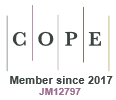Modeling fire interval data from the American southwest with the Weibull distribution
International Journal of Wildland Fire
9(1) 37 - 50
Published: 1999
Abstract
In this study, the Weibull distribution is tested as a possible model for fire interval data derived from dendrochronologically-dated fire scars from four sites in the American Southwest. Two- and three-parameter Weibull distributions were fit to fire interval data sets, and additional statistical descriptors based on the Weibull were derived to improve our understanding of the range of variability in presettlement fire regimes. The three-parameter models failed to provide improved fits versus the more parsimonious two-parameter models, indicating the Weibull shift parameter may be superfluous for Southwestern fire regimes. The Weibull Modal Interval (MOI) was a superior overall measure of central tendency, and appears to identify a common underlying structure in Southwestern fire regimes independent of habitat type and environmental gradients. Unusually short and long fire intervals were identified by the lower and upper exceedance intervals (LEI and UEI) and the Maximum Hazard Interval (MHI) based on the Weibull hazard function. Model statistics were nearly identical between two pairs of sites that were 260 kilometers distant that differed in topography, vegetation, and land-use history. However, differences were observed between sites only 10 kilometers apart, suggesting the influence of local factors (e.g., topography and substrate) over regional influences (e.g., climate). Although the Weibull models helped quantify the historical range of variability in presettlement fire regimes, ecological interpretations of the Weibull parameters proved difficult.Keywords: Weibull distribution, fire intervals, fire
regimes, fire history, disturbance history, Southwestern United States,
https://doi.org/10.1071/WF99004
© IAWF 1999


